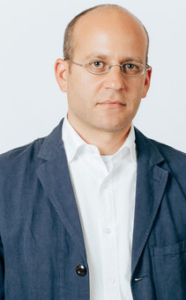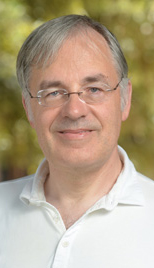Faculty Advisory Committee
Justin Dunnavant, Assistant Professor, Department of Anthropology

Justin Dunnavant is an Assistant Professor in the Department of Anthropology at UCLA. He holds a BA in History and Anthropology from Howard University and an MA and Ph.D. from the University of Florida. While his former research interrogated the history and representation of minority groups in southern Ethiopia, his current work in the US Virgin Islands investigates the relationship between ecology and enslavement in the former Danish West Indies. Justin has conducted archaeological research in US Virgin Islands, Belize, Jamaica, Ethiopia, Tanzania, Mozambique, and The Gambia. In addition to his archaeological research, Justin is co-founder and President of the Society of Black Archaeologists, an AAUS Scientific SCUBA Diver, and consults for the Smithsonian’s National Museum of African American History and Culture. In 2021, he was inducted into The Explorers Club as one of “Fifty People Changing the World that You Need Know About” and selected as a National Geographics Emerging Explorer. His research has been featured on Netflix’s “Explained,” Hulu’s “Your Attention Please” and in print in American Archaeology and Science Magazine.
Michael Osman, Associate Professor, Architecture & Urban Design

Michael Osman’s research in architectural history focuses on the 19th and 20th centuries, with a particular emphasis on buildings and cities in the United States. He seeks connections between the infrastructure that undergirds the processes of modernization and the historiography of modernist architecture. The topics of his writing include: the influence of ecological science on theories of city growth, early instruments for remote sensing, and the architectural profession’s relation to modern construction processes. Osman is the author of Modernism’s Visible Hand: Architecture and Regulation in America (University of Minnesota Press, 2018), a book on the role buildings have played in developing systems for environmental and economic regulation. He also works on critical problems in modernism’s historiography such as his examination of Reyner Banham’s use of the term “ecology,” an analysis of the metaphysical aspirations latent in twentieth-century writings on concrete, and a forthcoming co-edited volume on the uses of evidence and narrative in architectural history. Osman is one of the founding members of Aggregate: The Architectural History Collaborative, a platform for exploring new methods in architectural history. He co-curated a portion of the exhibition “Frank Lloyd Wright at 150: Unpacking the Archive” at the Museum of Modern Art. His research has been supported by fellowships from the University of California Humanities Research Institute, the National Science Foundation and the Fulbright Program. He currently directs the Department’s MA and PhD programs.
Lothar von Falkenhausen, Professor, Art History

Lothar von Falkenhausen is Professor of Chinese Archaeology and Art History at UCLA, where he has taught since 1993. He was educated at Bonn University, Peking University, Kyoto University, and Harvard University, and received his PhD in anthropology from Harvard in 1988. His research concerns the archaeology of the Chinese Bronze Age, focusing on large interdisciplinary and historical issues on which archaeological materials can provide significant new information. He has published copiously on musical instruments, including a book, Suspended Music: Chime Bells in the Culture of Bronze Age China (1993); Chinese bronzes and their inscriptions; Chinese ritual; regional cultures; trans-Asiatic contacts; the history of archaeology in East Asia; and method and theory in East Asian archaeology. His Chinese Society in the Age of Confucius (1000-250 BC): The Archaeological Evidence (2006) received the Society for American Archaeology Book Award. Falkenhausen was co-Principal Investigator of an international archaeological project on ancient salt production in the Yangzi River basin (1999-2004) and is presently serving as Instructor of Record of the International Archaeological Field School at Yangguanzhai (2010-). He serves on the Scientific Council of the French School of Far Eastern Studies and on President Obama’s Cultural Property Advisory Committee. He is a Member of the German Archaeological Institute; a Honorary Research Fellow of the Shaanxi Archaeological Academy; a Honorary Professor of Zhejiang University; and a Fellow of the American Academy of Arts and Sciences and of the American Philosophical Society.

